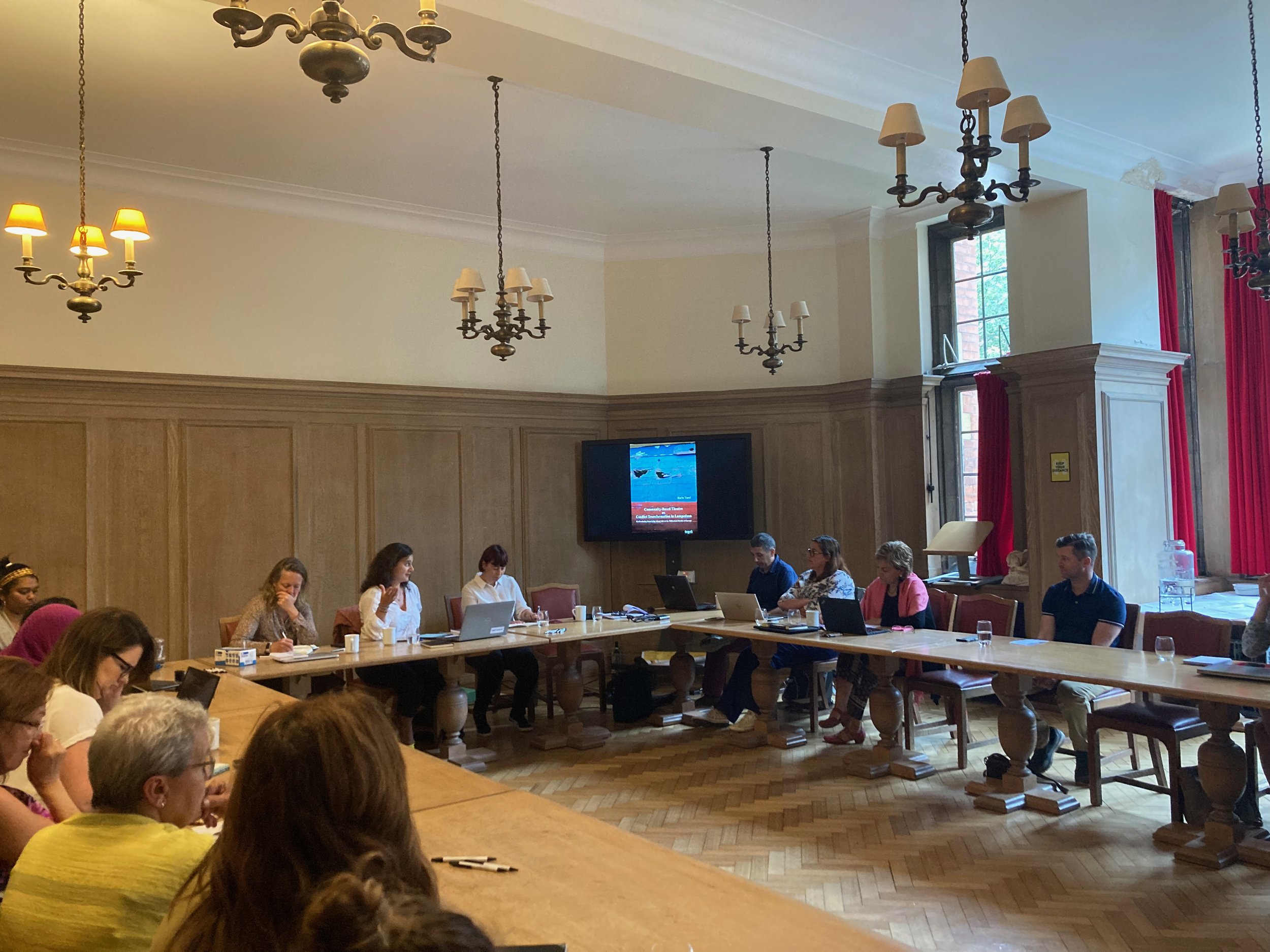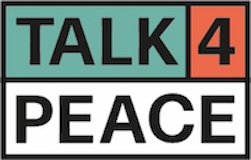
Launch
The Talk4Peace launch took place on the 20th July 2022, in Queen’s University Belfast. It was attended by a diversity of academics, practitioners and students. Practitioner attendance included, amongst others, representatives from TIDES training and consultancy, Shankill Women’s Centre, Theatre of Witness.
The event was introduced by Heidi Riley and Maria Adriana Deiana, who provided an overview of the project and gave a brief introduction to the concept of Transformative Mediation.
The schedule of speakers was as follows. The key points raised by each speaker is detailed below.
Laura Davis: Senior Associate with EPLO, working on Gender, Peace and Security (GPS). Poet and author of 'EU foreign policy, transitional justice and mediation’.
Laura provided a critical analysis of mediation policy, with a primary focus on the EU. She noted how at a policy level, there have been significant improvements on the inclusion of women in mediation as evidenced in recent EU policy changes. However, there unfortunately still remains an absent of policy on the inclusion of LGBTQI+ perspectives. She also noted the problem of a siloed approaches to the Women, Peace and Security agenda in EU mediation policy, which unfortunately leads to a disconnect between policy and practice, leading to the marginalisation of certain voices in practice. Laura also highlighted the double-edged sword of placing too much focus on women’s accreditation as mediators. She noted that while accreditation can be positive in terms of recognising women’s skills, it can also exclude others who may not be accredited but still hold extensive experience.
Beyond being a political scientist, Laura is also poet, specialising in experimental forms of poetry. Her recent poetry collection can be found here. On this theme, Laura also spoke about the power of poetry as a mode of communication in peacebuilding.
Bebhinn McKinlay: Women Mediators Across the Commonwealth Network, Northern Ireland representative.
Bebhinn spoke very positively about the importance of women mediation networks, primarily focusing on the Women Mediators Across the Commonwealth Network. This is a network of 49 women mediators and peacebuilders from 22 different countries. She noted the cross-cutting focus of the network’s work such as, advocacy, training, capacity building, and the recognition of innovative initiatives, such as trauma informed approaches or arts and creative methodologies. Bebhinn noted the importance of ‘investing’ in women for the long term as well as the importance of deployment opportunities for women in a number of mediation roles, either as direct mediators/negotiators or in technical support positions.
Yaser Alashqar: Mediation practitioner and trainer, based in TCD Dublin but with extensive mediation experience and specialist in Israeli/Palestinian context.
Yaser provided some important critical reflections on the priorities of peace mediation. He spoke of the importance of space to tell one’s ‘story,’ as well as highlighting how in mediation practice it is vital to be aware that people also communicate through body language as well as through spoken communication. In addition, Yaser highlighted the difficulties of reconciling peace with matters of justice (or injustice) and how the justice focus is often overlooked in peace mediation. He concluded his discussion with some critical reflections on the concept of ‘transformative mediation’, raising concerns around its lack of a problem-solving agenda.
Ilaria Tucci: Based in Tampere University and expert in the use of community theatre methods as a way to encourage inclusive and participatory dialogue.
Ilaria, as both an academic and theatre practitioner, spoke of her research on the island of Lampedusa, that has been particularly affected by large numbers of migrants and asylum seekers arriving on the island. In her research she used community-based theatre practice as a research methodology through which to allow space for local women to express their stories and needs in response to the changing living conditions on the island. She spoke of the value of theatre orientated and creative practices in mediating dialogue as it can facilitate the building of relationships in a very different way from sitting around a table. Her thesis in which this work is documented can be found here.
Patty Abozaglo: Mediation practitioner and researcher based in Maynooth University, worked extensively in Colombia, the island of Ireland and other parts of South America
Patty spoke about her experience of using body movement and “Laban dance” as a practice of communication in peacebuilding. Particularly important was her discussion on how such practices can be used in addressing, or even alleviating, trauma amongst participants. Other practices she noted as useful in taking a trauma informed approach are Capacitar methodologies work with simple breathing or body movement activities for stress alleviation. Patty’s noted the importance of taking a trauma informed approach to mediation, which is so often overlooked.
Presentations were followed by a vibrant discussion session with the audience.
